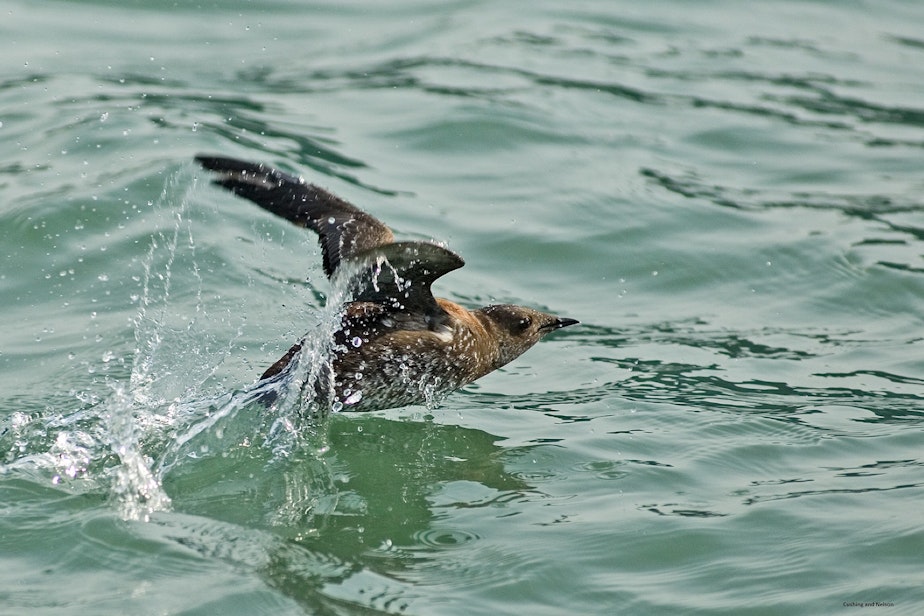New plan for endangered Washington bird doesn't make anyone happy

Washington state has a new conservation plan for marbled murrelets, an endangered seabird.
But both environmental advocates and the timber industry are upset about it.
Marbled murrelets spend most of their lives in Puget Sound, but, once a year, they fly up to 50 miles inland to lay a single egg on a wide, mossy branch.
“They’re really particular about where they will nest,” said Lisa Remlinger of the Washington Environmental Council.
Under the new plan, the state will conserve almost 300,000 acres of state-owned forests for murrelet nesting habitat and will open up an additional 100,000 acres of potential habitat for logging.
Some of the conserved land has older forests, where the trees are big enough for murrelets to find a place to nest. Some of it has younger forests that the state hopes will become good murrelet nesting habitat in the future. And some of it is not suitable for logging in any case.
Matt Comisky, with the American Forest Resource Council, said the plan conserves too much land.
“By removing those lands that aren’t murrelet habitat,” he said, referring to the younger forests with no suitable nesting habitat at the moment, “that’s going to have an impact on jobs and revenue into the future.”
Harvest revenue from state-owned forests goes to schools, and Comisky said the state has set aside too much land for birds and not enough for financing schools and providing jobs for rural communities.
But Remlinger said the state isn’t protecting enough land for the birds. She said the current plan will result in fewer marbled murrelets on state land than there currently are; in other words, she argues, it doesn’t do enough to help the endangered birds recover.
“This plan does not provide enough quality and quantity of habitat for the marbled murrelet now and into the future,” Remlinger said.
She wants the state to consider potential revenue sources from forests that don’t include logging, such as payments for carbon sequestration.




